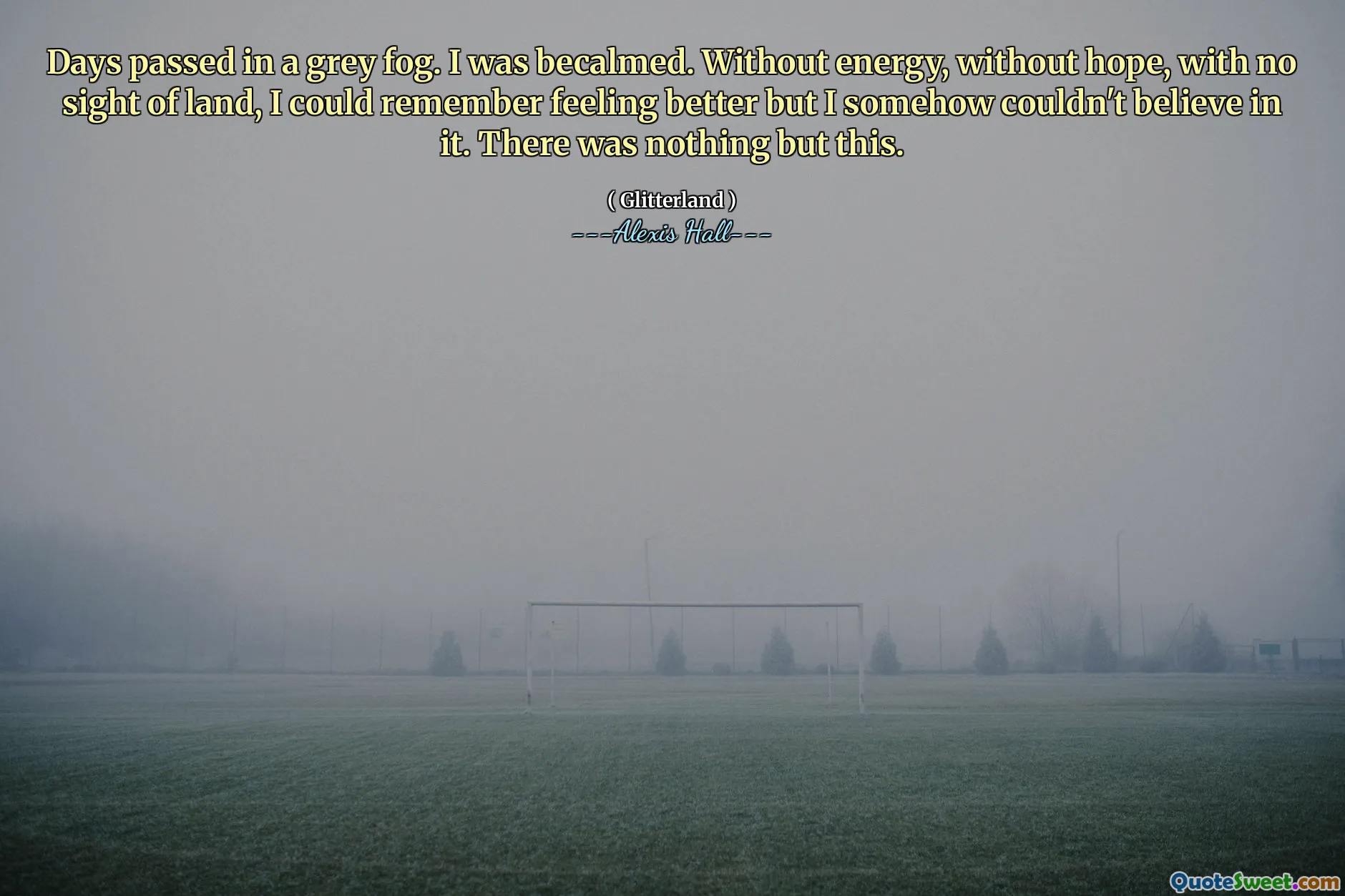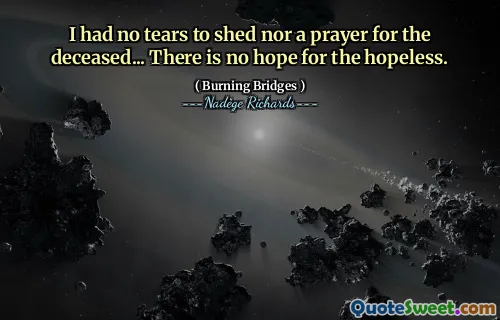
Days passed in a grey fog. I was becalmed. Without energy, without hope, with no sight of land, I could remember feeling better but I somehow couldn't believe in it. There was nothing but this.
This quote captures a profound sense of emotional and mental stagnation, evoking the experience of being trapped in a relentless state of inertia and despair. The imagery of a "grey fog" and being "becalmed" metaphorically conveys a paralysis in life's journey, where forward movement is impossible or feels futile. The use of nautical terminology—"becalmed"—is especially poignant, suggesting the stillness of a ship on calm waters with no wind to propel it, which mirrors the narrator's lack of energy and hope.
What resonates deeply here is the awareness of past better times, yet a disbelief in the possibility of their return. This reflects a common human experience during periods of depression or profound hardship: the memory of how life once was, juxtaposed with the present's overwhelming bleakness, leads to a kind of cognitive dissonance. The narrator remembers feeling better, but that memory almost feels unreal, intangible, or perhaps too painful to access fully. This denial or disconnect from former joy and vitality accentuates the hopelessness of the current state.
Such a moment of being "without energy, without hope" and "with no sight of land" also speaks to the absence of goals, direction, and motivation. The "no sight of land" is crucial—it not only highlights the uncertainty about the future but also embodies the feeling of isolation and loneliness. The land, often a symbol of safety, destination, and grounding, is out of reach, leaving the narrator adrift.
The phrase "There was nothing but this" is both stark and exhaustive. It implies a singular overwhelming experience that consumes all perception and existence, shutting out alternatives or avenues for escape. This encapsulation of emotion offers raw honesty about the human capacity to be swallowed by periods of despair.
In literary terms, this passage effectively uses minimalist language to convey profound emotion, inviting readers to empathize with this nuanced struggle. For anyone who has faced such moments, the passage validates those feelings by articulating them clearly and poignantly. It also invites reflection on resilience and the slow, sometimes imperceptible process of finding renewed hope and energy, even if such a recovery is beyond the narrator’s current sight.
Overall, this quote is a solemn reminder of the mental and emotional fogs that we might drift through and the importance of recognizing them as phases, with the potential for eventual change beyond the seeming permanence of despair.

